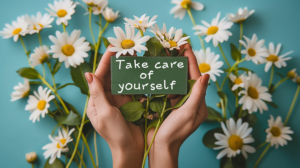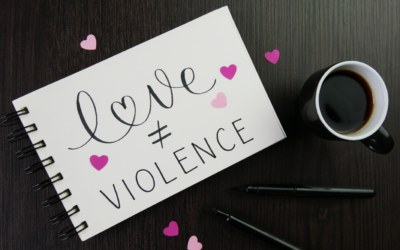Suicide and non-suicidal self-injury (NSSI) are serious issues that can affect people of all ages. While self-injury may not always be linked to suicidal thoughts, it is still a sign of emotional distress and should be taken seriously. If you know someone who is practicing non-suicidal self-injury, it’s important to offer support and understanding. Here are some tips on how you can help them through this challenging time.
Understanding Non-Suicidal Self-Injury
Non-suicidal self-injury, also known as NSSI, refers to deliberately harming oneself without the intent to end one’s life. Individuals engage in NSSI as a way to cope with intense emotions or stress by inflicting physical pain upon themselves. This behavior may involve actions such as cutting, burning, or hitting oneself. It’s crucial to understand that individuals who engage in NSSI are not seeking attention but are attempting to manage overwhelming and distressing emotions for which they may not have alternative coping mechanisms.
Those who engage in this behavior may be experiencing profound feelings of sadness, anger, or confusion. They may believe that self-inflicted pain offers a temporary release from these emotions, resembling the concept of screaming into a pillow when overcome by intense distress, but with more harmful consequences.
It’s important to recognize that while NSSI differs from suicide attempts, it is a serious concern that indicates the individual is struggling and requires support to develop healthier coping strategies. This behavior reflects internal emotional turmoil and the need for assistance to address the underlying issues, extending beyond the visible physical injuries.
Encourage Professional Help

It’s important to be supportive of your friend or loved one if they are hurting themselves on purpose. Encouraging them to speak to a therapist or counselor can be a significant step in the right direction. Professionals can provide valuable insights into why your friend may feel the need to harm themselves and can offer effective strategies for coping with these difficult emotions.
One way to show your support is by offering to assist your friend in finding a suitable therapist or counselor. Taking this step can feel overwhelming for them, so your presence and help can make the process a bit easier. You could explore options together and even accompany them to their first appointment if they desire the support.
Remember, it’s crucial to respect your friend’s autonomy when it comes to seeking professional help. It’s important to make them aware that you are there to offer support and encouragement, without pressuring them into making a decision. Your encouragement signifies your care for their well-being and your desire to see them get the right help.
Offer to Help Find Resources

Guiding someone to the right resources is like giving them a map when they’re lost. It can lead them to places where they can find the support they need. There are various resources available, such as websites, 24/7 phone helplines, and support groups where people discuss their experiences. By suggesting, “Let’s search for help together,” it can make the process less overwhelming for them as they won’t be alone in their search.
You can begin by looking online for organizations that assist individuals who are struggling. Additionally, there are apps specifically designed to help people feel better during tough times. If they are comfortable with it, you can compile a list of resources together so they can see the multitude of places where they can seek help.
Support groups are also a valuable resource. These gatherings bring together individuals facing similar challenges to share their stories and provide mutual support. Being part of such a group can make your friend feel less isolated and help them realize that others understand their feelings.
It’s important to remember that the most crucial thing is for them to decide when they’re ready to reach out. You are there to guide them and remind them that there is hope and help available.
Learn About Healthy Coping Mechanisms

Learning new ways to navigate challenging times can be incredibly beneficial for someone struggling with self-harm. Imagine coping mechanisms as a collection of tools in a toolbox. When faced with difficulties, having a diverse set of tools to choose from is extremely valuable. For instance, one tool could involve expressing thoughts and emotions in a journal, providing a safe outlet for all that’s on one’s mind. Another tool might involve physical activity, such as going for a walk, engaging in a sport, or dancing to favorite tunes, which can help manage feelings of sadness.
Engaging in mindfulness practices can be likened to becoming a superhero of one’s own mind. It involves focusing on the present moment and letting go of other concerns. This can be achieved through techniques like breathing exercises and guided meditations, which can be learned from various apps and videos.
Discovering hobbies that bring joy is akin to finding a secret path to happiness. Whether it’s drawing, playing a musical instrument, or constructing models, these activities not only provide enjoyment but also offer a means of self-expression without the need for words.
It’s all about having a diverse range of healthy options to turn to when feeling low. Encouraging a friend to explore these tools can aid them in discovering new coping strategies that do not involve self-harm.
Be Patient and Persistent

Helping a friend who is intentionally harming themselves can be very challenging. It’s natural to want to fix everything right away, but it’s important to realize that healing takes time. Similar to learning a new skill such as riding a bike or playing a game, there will be good days and bad days. Your friend will experience both ups and downs, and that’s completely normal. What they need from you is patience and your ongoing support, especially during tough times.
Think of yourself as their cheerleader, rooting for them even when they struggle or feel like giving up. Demonstrate your faith in their ability to overcome their difficulties. It’s akin to playing a video game and facing a difficult level – it may be incredibly frustrating, but the feeling of triumph when you finally conquer it is worth it. Your encouragement can provide your friend with that amazing feeling of conquering a significant challenge.
Remember, being there for them doesn’t mean that you need to have all the answers. Simply being present, offering a supportive shoulder, and inspiring them to persevere can make a substantial difference. Your support can help them recognize that there is hope and that they are not alone in their journey.
Take Care of Yourself

Helping a friend who is hurting themselves can be tough on you too. It’s like when you’re trying to lift something really heavy; you also need to make sure you don’t hurt yourself. Taking care of yourself means doing things that make you feel good and relaxed. You could listen to your favorite music, spend time with friends who make you laugh, or dive into a good book. It’s okay to talk about how you’re feeling with someone you trust, like a family member, teacher, or counselor. They can offer you support and maybe even advice on how to handle things. It’s like having a team behind you while you’re helping your friend. Also, don’t forget to take breaks and breathe. Helping someone is a big deal, but you have to wear your own oxygen mask first before you can help someone else with theirs. Remember, it’s important to stay strong and healthy, both for your friend and for yourself.










